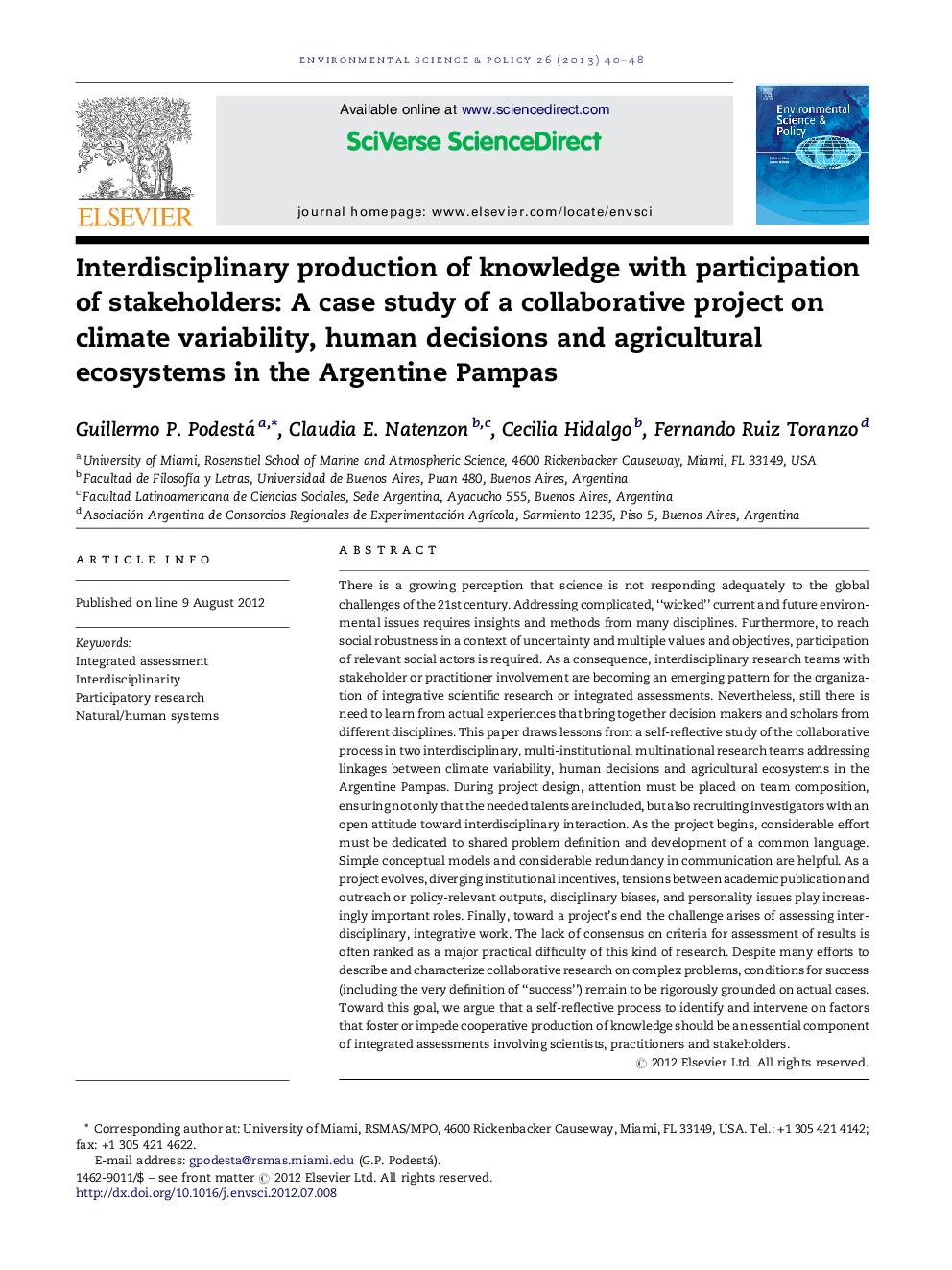| کد مقاله | کد نشریه | سال انتشار | مقاله انگلیسی | نسخه تمام متن |
|---|---|---|---|---|
| 1053712 | 1485080 | 2013 | 9 صفحه PDF | دانلود رایگان |

There is a growing perception that science is not responding adequately to the global challenges of the 21st century. Addressing complicated, “wicked” current and future environmental issues requires insights and methods from many disciplines. Furthermore, to reach social robustness in a context of uncertainty and multiple values and objectives, participation of relevant social actors is required. As a consequence, interdisciplinary research teams with stakeholder or practitioner involvement are becoming an emerging pattern for the organization of integrative scientific research or integrated assessments. Nevertheless, still there is need to learn from actual experiences that bring together decision makers and scholars from different disciplines. This paper draws lessons from a self-reflective study of the collaborative process in two interdisciplinary, multi-institutional, multinational research teams addressing linkages between climate variability, human decisions and agricultural ecosystems in the Argentine Pampas. During project design, attention must be placed on team composition, ensuring not only that the needed talents are included, but also recruiting investigators with an open attitude toward interdisciplinary interaction. As the project begins, considerable effort must be dedicated to shared problem definition and development of a common language. Simple conceptual models and considerable redundancy in communication are helpful. As a project evolves, diverging institutional incentives, tensions between academic publication and outreach or policy-relevant outputs, disciplinary biases, and personality issues play increasingly important roles. Finally, toward a project's end the challenge arises of assessing interdisciplinary, integrative work. The lack of consensus on criteria for assessment of results is often ranked as a major practical difficulty of this kind of research. Despite many efforts to describe and characterize collaborative research on complex problems, conditions for success (including the very definition of “success”) remain to be rigorously grounded on actual cases. Toward this goal, we argue that a self-reflective process to identify and intervene on factors that foster or impede cooperative production of knowledge should be an essential component of integrated assessments involving scientists, practitioners and stakeholders.
► Interdisciplinary teams are increasingly common in integrative research but conditions for success in this type of work remain unclear.
► A self-reflective assessment on the collaborative process should be an essential component of integrated assessments.
► Different issues and conflicts arise as interdisciplinary collaboration evolves from project design to project assessment.
► The lack of consensus on criteria for assessment of interdisciplinary research is often ranked as a major challenge.
Journal: Environmental Science & Policy - Volume 26, February 2013, Pages 40–48